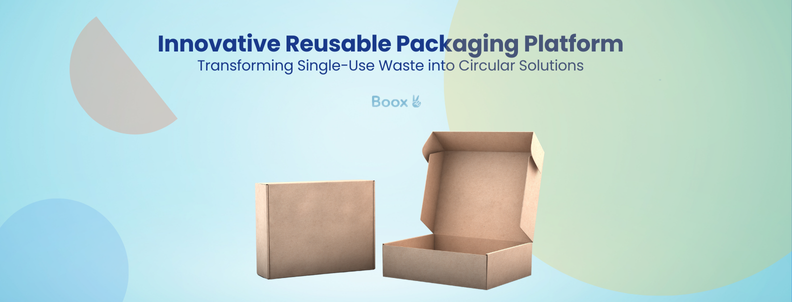The cannabis industry, over the period, has dramatically adopted the minimalist mantra in the form of ‘microdosing’, aka infusing a very small amount of cannabis into various kinds of products like medicines, foods and beverages, nutraceuticals, building materials, biofuels, cosmetics, et Cetera.
As we have approached the mid of 2019, we are long over the mainstream ‘stoner’ stereotype of marijuana as the industry has attained much sophistication recently. Every growing industry flourishes in its own ways and microdosing is doing that tremendously for cannabis. In fact, according to a report by Grizzle, the cannabis edible industry is expected to become a billion-dollar industry in Canada alone within two years.
While everything else goes up in smoke, the marijuana industry is surely going to lead the retail market in the coming years.
However, with so much rush around this THC+CBD compounds infused element, not every cannabis product is going to be your revenue generation machine.
So, let’s have a look at some of the major market trends to watch for in cannabis microdosing for different industries.
A Relevant Upcoming Webinar: We are hosting an interactive webinar (free) on Cannabis Miscrodosing research where we will be discussing its current trends and future prospects. We also have a dedicated Q&A slot where you can get your queries resolved. Go here to book your seat.
1. Cannabis in food and beverages (one large-scale category likely to emerge in 2019)
The edible market is going to boom out from the black box and 2019 is going to a year of licit edibles. With big names like Constellation brands, Gfarmalabs, MPX, and Sprig already working on cannabis-infused drinks, THC Pharma and HEMP20 are also moving slowly into the domain.
Below we have listed some of the notable activity by companies working in the domain:
- THC Pharma has filed a patent application US20180020699A1 titled ‘CBD containing beverage’ – which is basically a beverage which has at least one emulsifier.
- HEMP20 has patented a technology(US9585924B1) based on the manufacturing of herbal water beverage using hemp oil.
- ViPova– (superfoods and enhanced food products production), has a patented technology on ‘DehydraTECH’ which increases the intestinal absorption rates(Finally something to increase the onset time of beverages!). Not only this, it provides a rapid delivery to the bloodstream and some taste-masking benefits.
The interesting part is that the same technology ‘DehydraTECH’ is covered by almost 40 countries around the world with patents either issued or at the pending stage.
- We are also going to get the world’s first alcohol- free beer brewed from cannabis by the Province Brand(Canadian R&D company).
- Talk about glycosylation? Trait Biosciences is using it to mimic the body(when it metabolizes cannabis). This can help avoid the “salad dressing effect” to improve the onset time. The company has also filed a patent application covering a method to achieve the same(WO2018176055A2).
R&D activity aside, let’s have a look at some of the collaborations in the area.
What are the major collaborations in this area?
- Alcanna and Aurora: includes provisions for Alcanna to develop a retail cannabis network.
- Constellation Brands and Canopy growth: to develop and market cannabis-based beverages.
- Molson Coors and Hydropothecary: The idea is to start a non-alcoholic cannabis-infused beverage startup.
- AB InBev and Tilray: The companies have ventured into a $100-million joint venture to research cannabis-infused non-alcoholic drinks for the Canadian market.
- Altria has invested $1.8 billion in Cronos group(Canadian cannabis company) which gives it 45% of the stakes over the company. Talking of stakes, it has one in Anheuser-Busch InBev too, the world’s largest brewer.
Wait, there’s more.
- Coca-Cola is working to produce cannabidiol(CBD) based drinks in collaboration with Canada’s Aurora Inc.
- Hi-Fi Hops – beer-flavored sparkling water with THC and CBD is launched by Heineken’s craft beer brand, Lagunitas.
- In the biggest legal cannabis deal to date, the Constellation brand is reported to spend $3.8 billion to increase its stakes in Canadian company Canopy Growth.
2. Therapeutic/Medicinal Use
By applying the hidden benefits of Cannabis to a variety of wellness issues, companies like Sandoz, HydRx Farms Ltd, HydRx Farms Ltd, GW Pharmaceuticals, Youngevity, are able to establish a benchmark in the pharmaceutical domain.
CBD, a cannabinoid present in cannabis is used to manufacture synthetic cannabinoids such as dronabinol( acts as an appetite stimulant, antiemetic, and sleep apnea reliever) and nabilone(treats nausea and vomiting in people under chemotherapy) which are available for prescription use in some countries.
Currently, there are a few cannabinoid-based medicines available like:
- Nabiximols (Sativex)—oromucosal spray formulated from extracts of the Cannabis sativa plant that contains the cannabinoids THC and CBD;
- Nabilone (Cesamet or Canemes)—oral capsules containing a synthetic cannabinoid similar to THC;
- Dronabinol (Marinol or Syndros)—oral capsules or an oral solution containing synthetic delta-9-THC.
- The U.S. FDA also recently approved Epidiolex (cannabidiol), an oral solution for the treatment of seizures associated with two rare and severe forms of epilepsy.
- GW Pharmaceuticals Plc has created a CBD treatment for child-onset epilepsy and received approval from the U.S. Food and Drug Administration for its sale as a medicinal product.
- Further, companies like Youngevity have also ventured into the market with its HempFX™ product line with three distinct hemp-derived CBD oil products.
- The products include Soothe™, a blend of botanicals designed to relieve muscles by calming aches and pains.
- Uplift™, which combines CBD with St. John’s Wort to improve cognitive performance and mood.
- Relax™, which combines CBD with a variety of herbs and melatonin to bring relaxation and a better night’s sleep.
Major collaborations
- One of the more successful companies in the cannabis sector, Aphria, Inc. saw its profits and revenues rise steadily through 2016 and 2017. Aphria recently signed a letter of intent to form a joint venture with Perennial, Inc. in which the companies will collaborate on developing products for the Canadian cannabis market. Perennial’s expertise in strategic brand development will help Aphria reach more customers with its leading cannabis-based products, expanding its presence in one of the world’s most important cannabis markets.
- Nemus Bioscience entered into a partnership with Albany Molecular Research Inc. (AMRI) to manufacture cannabinoid-based active pharmaceutical ingredient for the treatment of Glaucoma.
- NHL Alumni Association and Canopy Growth Corporation announced a transformative clinical research partnership that will investigate the efficacy of cannabinoids as an integral part of a novel treatment for post-concussion neurological diseases in former NHL players.
3. Recreational products
While the smoke goes up and out, cannabis has taken over the market with people replacing smoking with cannabis inhaler.
The cannabis entrepreneurs have joined hands with the pharmaceutical industry to help people preserve their medicine(cannabis) in the form of an inhaler. The negative stigma attached to smoking from hand smoke to cancer has put people off it and they are looking for alternate solutions.
Cannabis market sales for recreational use in the United States surged from $998 Million to $11670 Million (from 2015 to 2020). This market is skyrocketing and people are continuously using cannabis for recreational purposes like relieving anger, pain, fear, anxiety, and stress.
The companies working in the domain have benefited from the growth too. Canopy Growth Corp, for instance, became the world’s largest publicly traded weed company with a market cap of $13.1B. Altria, the maker of Marlboro and other cigarettes, on the other hand, paid $1.8 billion for almost half of Cronos Group, a cannabis company in Toronto.
Cannabis is soon going to be used as a creative way to manage stress/anxiety just like we intake vitamin C to avoid sickness.
More recreational exploration
- Petra, a marijuana mint product launched by Kiva Confections is a mixture of cannabis, green tea, and other refreshing flavors.
- To keep the functioning of the body intact and mind free, a company named ‘To Whom It May Chocolates’ launched chocolates with varying doses (ranging from 2.5 to 45 milligrams) to enable a person who have never tried cannabis before to have a pleasant experience.
- Cannabiniers launched cannabis-infused beer, tea, and coffee last summer.
- Cannabinier’s ‘two roots’ is the world’s first “CannaCrafted” beer. Special equipment is used to strip out alcohol from it after being brewed as a traditional craft beer.
- 27% of the edible cannabis products in California are gummies. (Favourite flavor is watermelon)
- In California, the most popular chocolate brands have 20 servings and each serving has 5mg of THC.
- Top 10 brands in Colorado and Oregon in this domain have high prices and more market share than that of their competitors.
Out of the $13.9 million sales in Colorado last year, $5.3 million belonged to the CBD rich products.
4. Nutraceuticals
Cannabidiol products are becoming increasingly popular and many nutraceutical companies are jumping in on the trend. There is a lot of research going on the domain given the market demand, and below listed are some of the patents filed in this area:
- US20180250262A1 titled Sustained release cannabinoid formulations
- US20180263953A1 titled Sustained Release Cannabinoid Formulations
- WO2017151980A1 titled Cannabis-based bioactive formulations and methods for use thereof
- WO2017151980A1 titled Therapeutic delivery formulations and systems comprising cannabinoids and terpenes
- Nam et al., 2016 titled Application of bioactive quercetin in oncotherapy: from nutrition to nanomedicine.
The nutraceutical industry is estimated to cross USD 31.6 billion by 2023, according to Market Research Future(MRFR), with a CAGR of 6.70%.
5. Cannabis Biofuel
Cannabis has become one of the most popular alternatives for biodiesel and biofuels. Why?
Cannabis outshines the respective feedstocks of each country including palm oil, sugarcane, maize, etc. and is highly adaptable and grows really fast. Also, it can be cultivated at most latitudes. It is perfect for producing biofuel and biodiesel as it is one of the few plants that have high yields of biomass and oil both.
Cannabis is considered to bring a revolution in the fuel industry – a dynamic combination of internationally distributed and locally determined (consumers can be producers) plant. It has its perks too. Let’s have a look at some of them.
What are the perks of cannabis biofuels?
- It needs the least pesticides.
- It’s a good alternative for weed.
- High biomass and low input requirement.
- Small scale cultivation? Works tremendously well.
- No long term commitment required.
Isn’t this too good to be true?
One might not help but wonder – Why despite so many advantages it’s still not the major source of biofuels worldwide?
Economical competition with petroleum-based fuels or other biofuels is actually the reason behind its struggle in terms of profit. Shifting away from petroleum or other biofuels on an immediate basis may take a huge toll on a company’s pocket. Therefore, though not immediate, we may see a gradual shift towards cannabis biofuels in the near future.
Below listed are some of the major companies trying to make cannabis-based biofuel as a popular alternative to other fuels a reality.
Major companies working in this area
6. Building material
Hempcrete has proven to be an efficient alternative for sustainable housing. Hemp produced plastic is much lighter and stronger than conventional steel. It can also be made biodegradable and non-toxic.
Further, the plant which is grown for hempcrete has only 0.3% of THC in its strain. It is also free from all the toxins.
Below listed are some of the major collaborations in the area.
Major collaborations
- Treehouse, which is a collaboration between MedMen and Stable Road Capital is a real estate investment company focused on the acquisition, ownership, and management of regulated adult-use and medical-use cannabis facilities. The entire arrangement has around 76 retail licenses and 16 cultivation and manufacturing licenses in 12 states under it.
- Headset (marijuana data & analytics provider in Seattle, raised around $12.1 million for expansion, with investor Canopy Growth acquiring a key stake in the company.
- Alphria acquired CC Pharma majorly to boost its medical supply chain in Germany.
- A $15 million deal was closed recently as Inverell S.A. was acquired by Auxly Cannabis Group which exposes Auxly to low-cost cannabinoid sources(for global distribution)
7. Lifestyle and cosmetics
“Cannabis is a medicinal herb that contains compounds that can help the human body regenerate itself,”– Dahlia Mertens, wellness expert.
Cold sores, acne, psoriasis, eczema, just say it and we have grandmother’s magical cure for it- ‘Cannabis’. Its antiviral and antibacterial property makes the cure possible through a group of chemical compounds(active) that provide balance in our bodies.
Motivated by the same, a lot of cosmetic and lifestyle companies have innovated in the area. Below listed are a few of them.
- “High Beauty” is a cosmetic brand launched by Sephora – a French beauty label – around September 2018. It was Sephora’s first cannabis-infused cosmetic brand. Its market is estimated to be worth $48.3 billion by the end of this year.
It just hasn’t been mainstream until people started seeing Cannabis as a lifestyle ingredient, or one for wellbeing.
– Melissa Jochim, founder of High Beauty.
Top cannabis-infused beauty products
- MGC Derma uses CBD in almost all its products but the one which is catching major attention is its day cream.
- Dr. Perricone puts CBD’s anti-inflammatory properties to use through its gentle cleanser products developed for men.
- Josh Rosebrook combines hemp oil and aloe vera to produce a natural shampoo.
- Malin+Goetz produced a cannabis scented hand and body wash which cleanses but doesn’t dehydrate the hands.
- Body Shop’s hemp hand protector provides all-day nourishing by applying it just once.
The skincare industry is alone worth 11 billion dollars(massive!). While cannabis is considered to be the most profitable ingredient for the skincare industry, we can surely expect this industry to boom.
For instance, Mary Medicinals, a Colorado-based brand, offers legal CBD beauty products with approximately $900,000 in sales per month.
But, it’s still difficult to legally access these CBD beauty products globally and hence it becomes all the more difficult to monetize them.
While we are researching more in the cannabis industry, it surprises us every single day with some crazy news and magical benefits. In case you have any queries, feel free to send us a message:

Authored By: Kanika Sharma, Market Research, and Gaurav Sharma, IP Solutions.
Recommended Read: Interested in venturing into the Marijuana industry or want to earn a majority of the pie in the domain of choice? The first step to achieve it is to set a clear research focus and business goals. To aid you in the process, we have segmented the marijuana industry based on application areas, giving you a bird’s eye view of the available options. The next step is to play on your strengths and choose the “right” option. We hope this taxonomy helps you get there – Click to read.
This article is a part of an ongoing series on the Marijuana domain. Below is the list of all the articles of the series:










